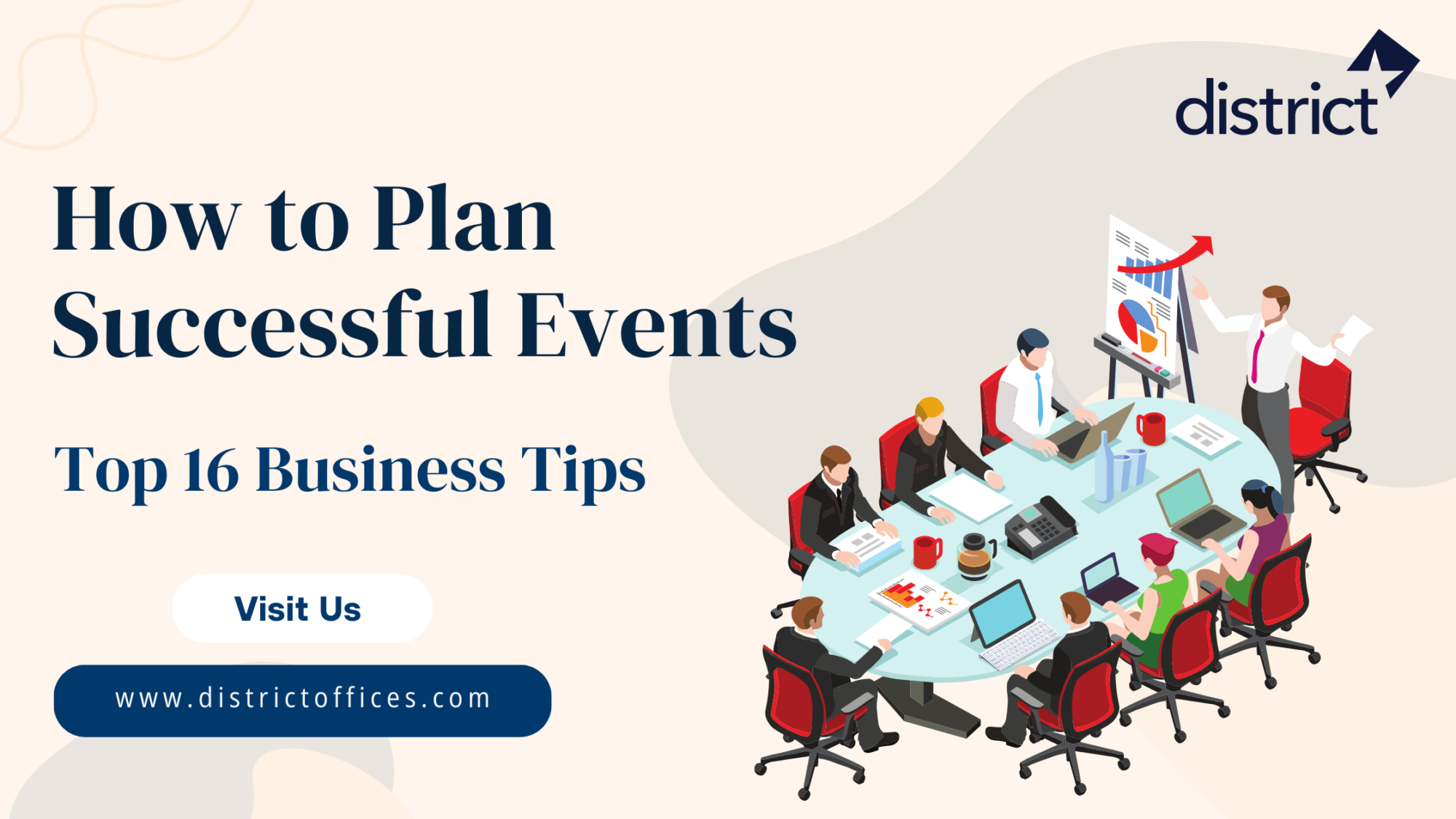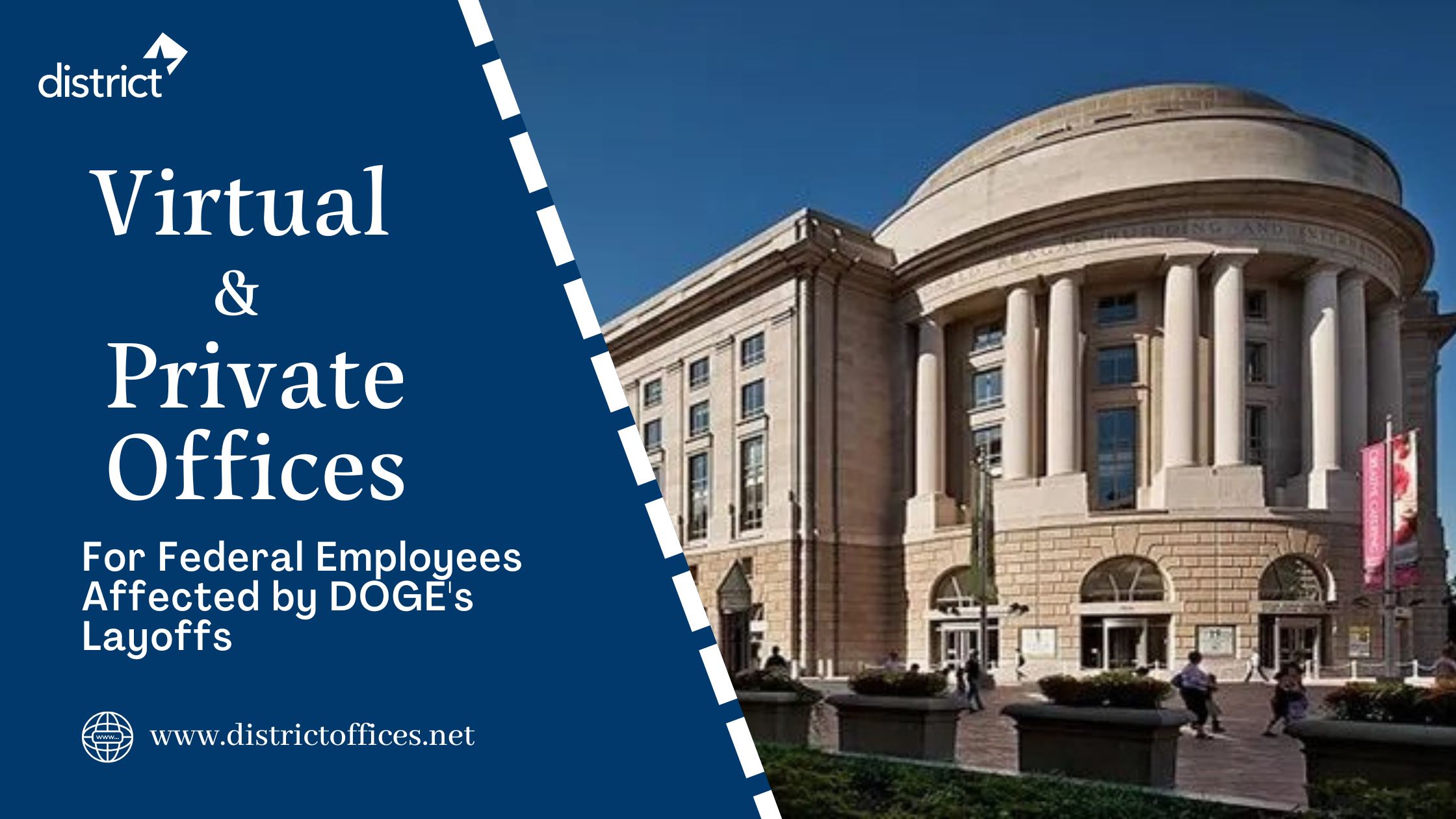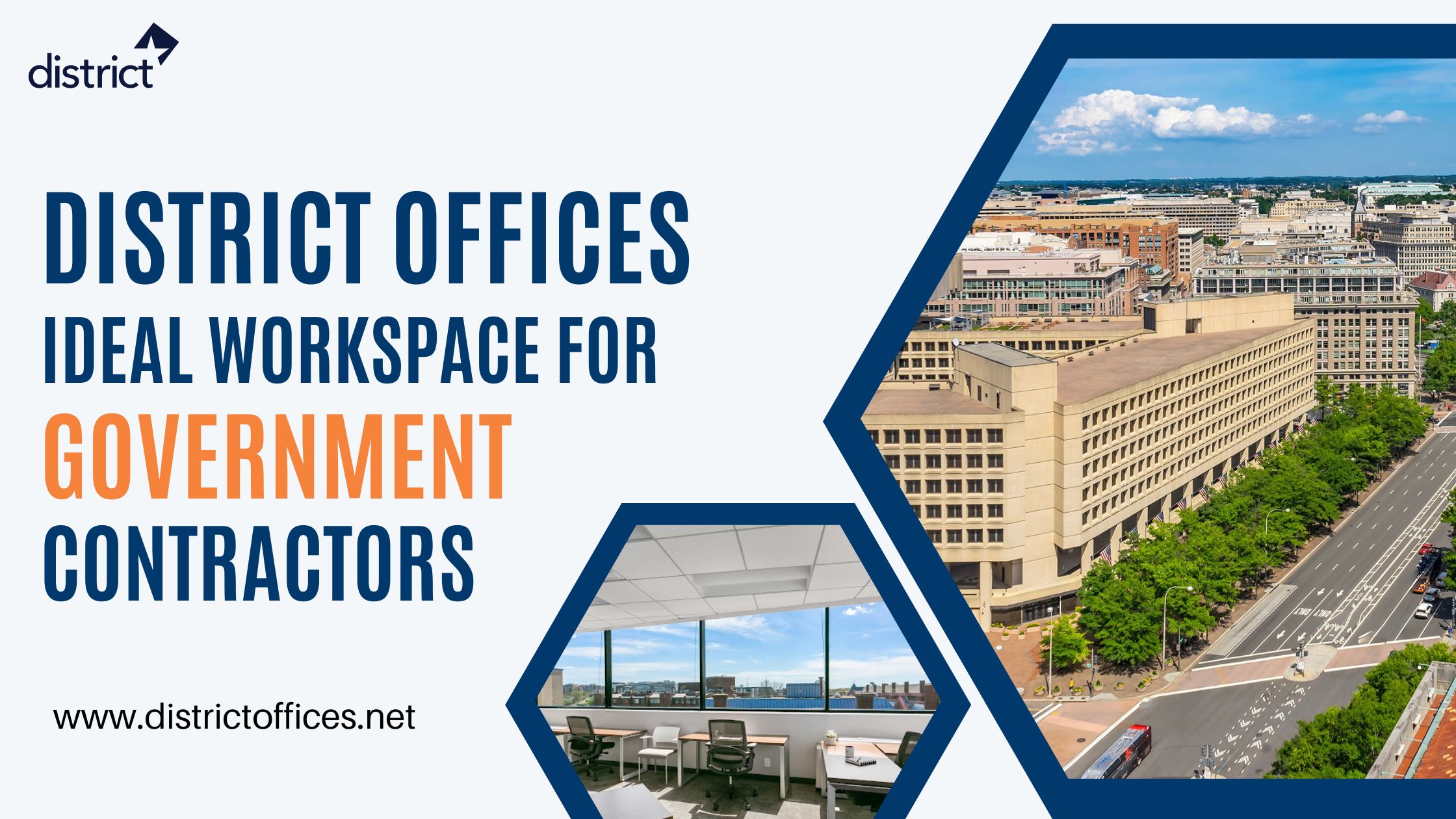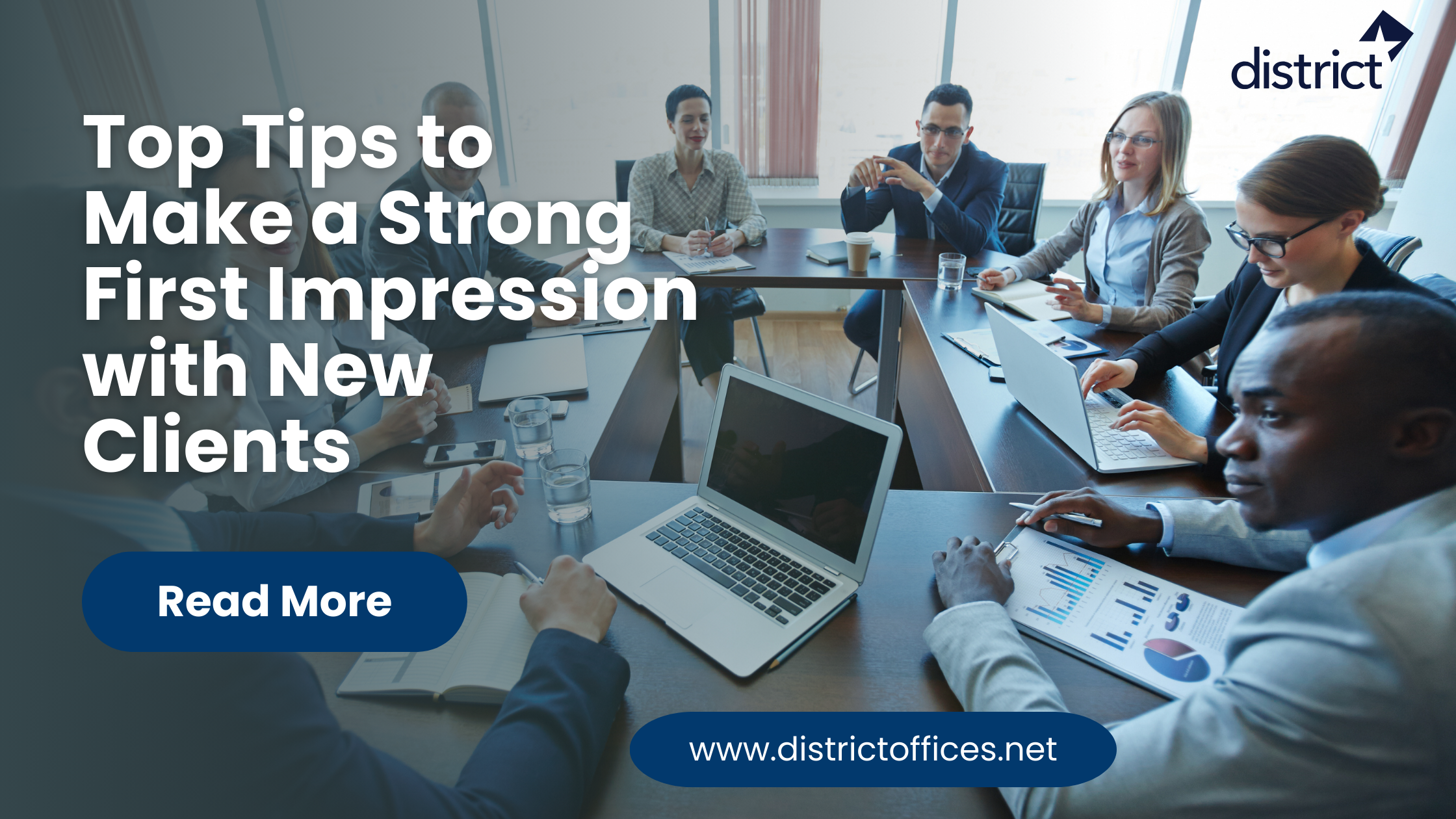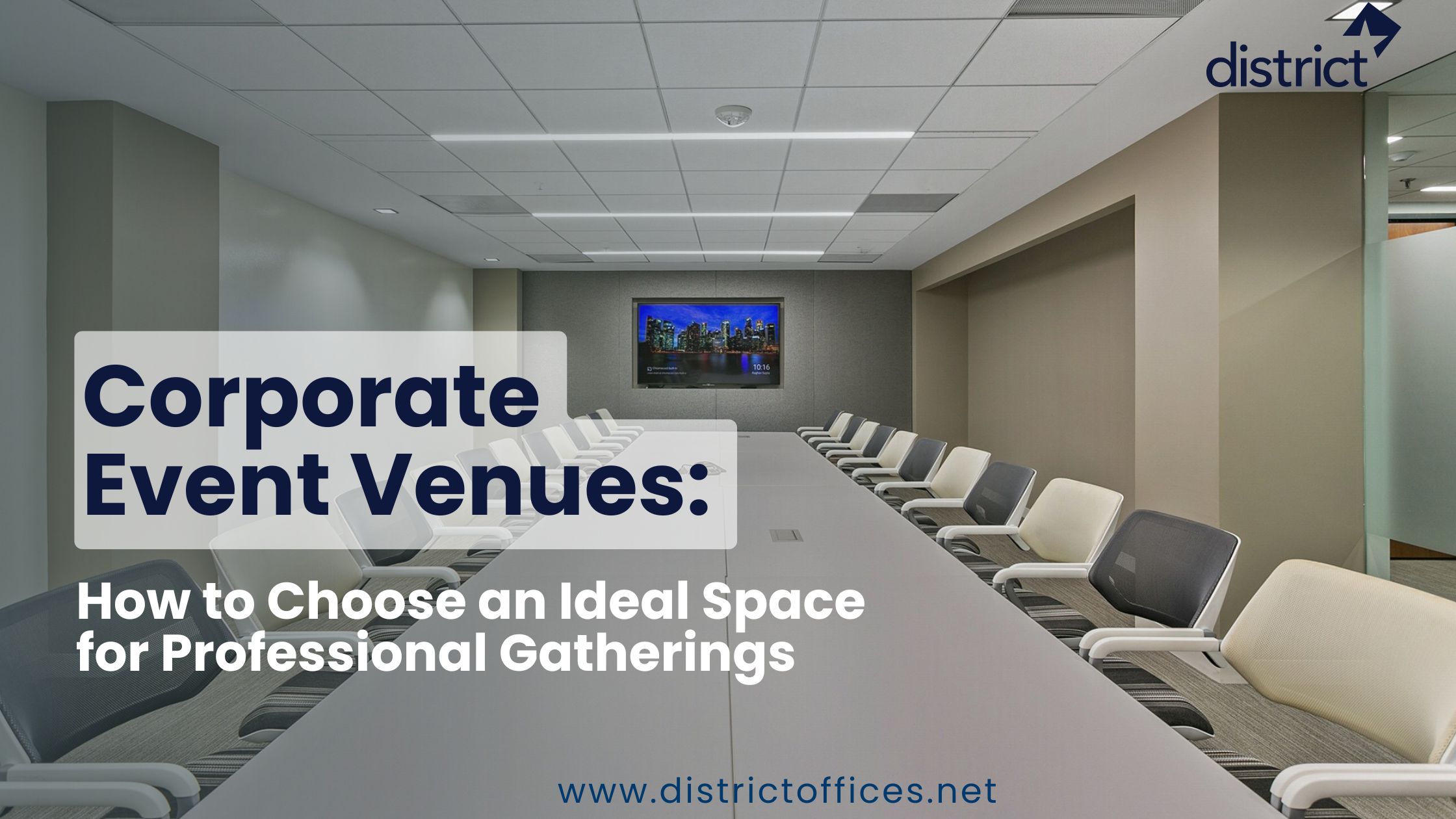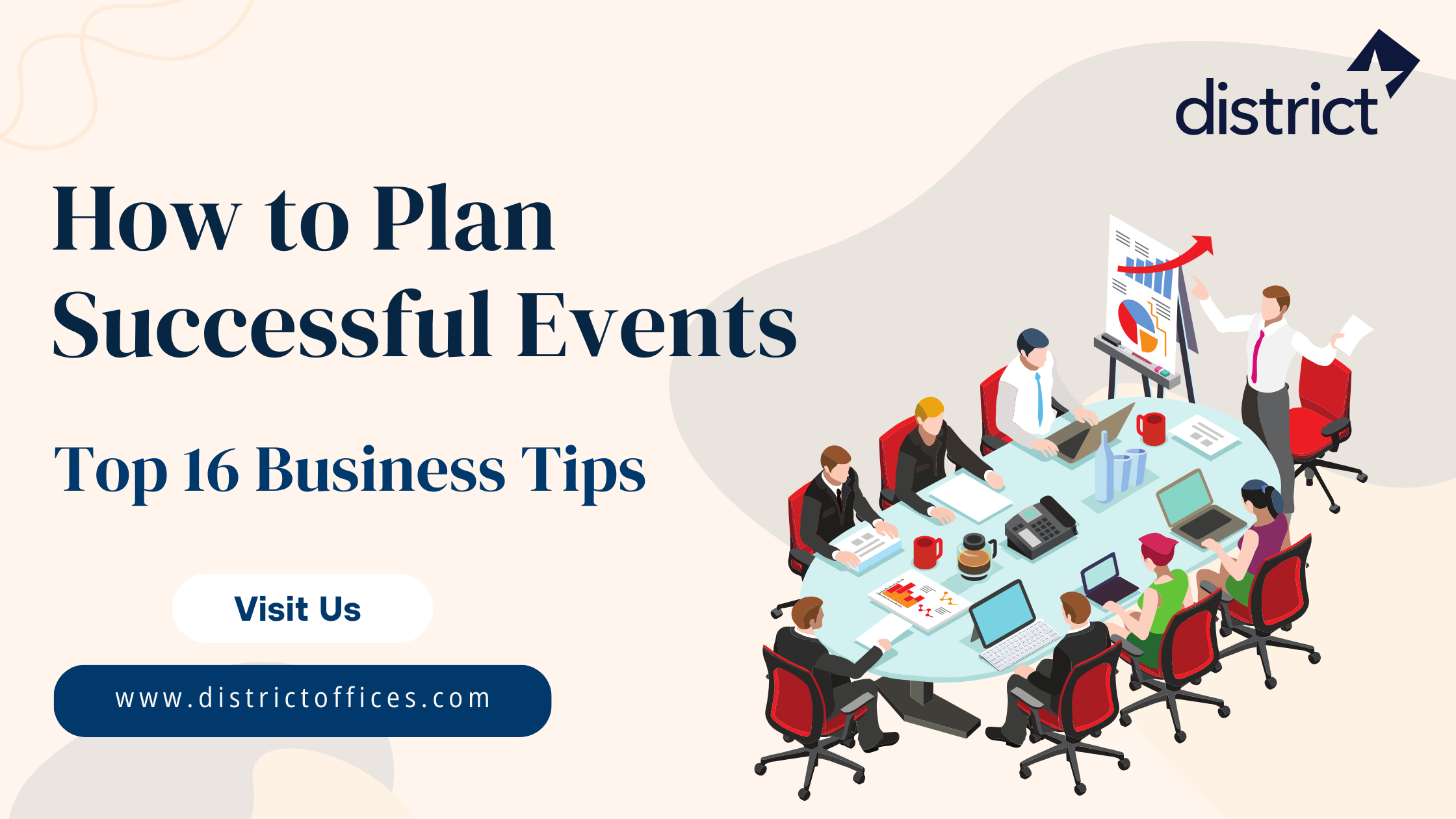Organizing corporate events is a wonderful way to establish relationships with partners, clients, and employees. These events can bring employees together, notify the audience about your business, and emphasize your organization’s achievements and evolution. You can further improve the impact that your event creates by using different marketing strategies. You need to plan small to big things that cover your entire event schedule.
However, planning and organizing a successful event can sometimes be difficult because it requires a lot of components. It does not matter how well you plan and script events, there are unforeseen circumstances that make things never go as planned. Any small or missing thing can make this exciting process stressful, if not carefully planned. You should take ownership to ensure that your event is not only successful but also unforgettable, helpful, and inspiring. All of this is possible with the right preparation, a well-defined goal, a dedicated team of experts, and a suitable venue.
Now, we will discuss the best tips for great corporate event planning in this blog. With these simple strategies, you will avoid common pitfalls and make your next event an enormous success.
Also Read: Host Your Office End of Year or Holiday Celebration with District
Table of Contents
ToggleBest 16 Event Planning Tips for Successful Events
To help you prepare for your next event, here are the best planning tips that you can follow:
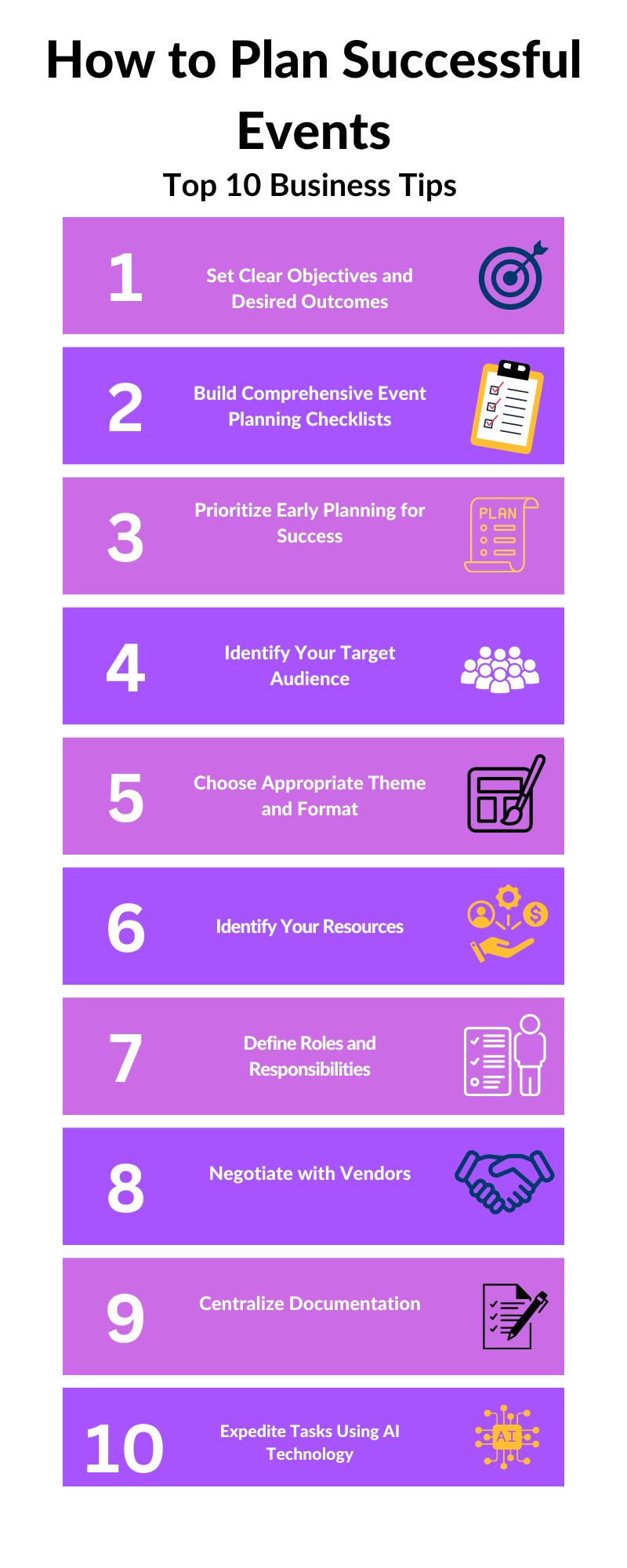
1) Set Clear Objectives and Desired Outcomes
Setting goals about what to accomplish with the event is the key, it’s important to determine the purpose and objectives of your corporate event. How do you evaluate whether your corporate event was a success? What takeaways and tips do you want your participants to gain from the event? Do you wish to educate or engage the audience with this event? Knowing all these objectives will help you drive all other decisions, making more streamlined planning.
2) Build Comprehensive Event Planning Checklists
You can start by creating a well-structured checklist which will ensure that you don’t forget anything. You can start by noting down every task, no matter how small or big it is. Here you need to recognize the important and urgent tasks to make sure that urgent tasks that have a significant impact on the event and that need immediate action should be completed on time. You can also assign a deadline for each task and monitor the progress accordingly.
Also Read: 12 Exciting Corporate Event Ideas to Enchant Your Guests
3) Prioritize Early Planning for Success
As far as planning and set-up go, you need to start early so no last-minute blunders occur, and vendors are not available on the date of your event. You need to have a proper timeline for various aspects of the event to identify any barriers and resolve them before they become a problem. To keep your focus on the essential elements of your event, from venue selection to sponsor acquisition, it is necessary to be clear and precise on the objective of your event.
4) Identify Your Target Audience
The next important thing to consider is the target audience, you should have a clear understanding of who your attendees would be. When you comprehensively know your audience, you can schedule an event that is as per their preferences and interests. Choosing the right speakers and developing a marketing campaign is important. Thus, narrowing down your visitors is crucial. This type of planning provides you with a better chance to widen your audience and improve your reach.
5) Choose Appropriate Theme and Format
This is one of the most important aspects when planning an event as the right theme and format will suit your business goals and audience as well. The theme you choose has a huge impact on how your attendees perceive, recognize, and experience your event. So, you should always provide opportunities for attendees to do something entertaining, memorable, and fun that they wouldn’t normally do anywhere else. This can be something new, exciting, or exclusive for the first time.
6) Identify Your Resources
Now, it’s time to identify resources and constraints if any. How big would the event be, would your team be able to manage it? You need to appoint the team early on and ensure that you have a set budget to work with and won’t have any unrealistic expectations. Teams, vendors, partners, and anybody else who helps you with your event can all be considered as resources. Constraints would be referred to as contracts, deadlines, regulations, risks involved, etc.
7) Define Roles and Responsibilities
Any event can become a tremendous success when proper roles and responsibilities are assigned and fulfilled to achieve a common purpose. It is always said that behind any spectacular event, there is a dedicated team that works hard and collaboratively to ensure that all elements come together smoothly. So, you need to start with the right group of people, with each assigned their tasks and responsibilities.
8) Negotiate with Vendors
You should include rules for what happens when significant changes occur in your contracts with your vendors. An event organizer’s success may be determined by the ability to create long-lasting, mutually beneficial partnerships with vendors. As with your clients, set up the same late fee policies and costs for your vendors. Also, get your scope of work in writing.
9) Centralize Documentation
Consistent documentation and centralization of records means keeping records that can be accessed, shared, and used to improve collaboration and decision-making. As multiple people are working on your corporate event, it is necessary to have one place where everyone can go for solutions or answers. By centralizing paperwork, planners can establish a sole source of truth for everything from floor plans and contracts to guest lists and feedback forms.
10) Expedite Tasks Using AI Technology
Artificial Intelligence facilitates more effective event planning and enhances all aspects of event management, including marketing, execution, assessment, and more. From planning and marketing to execution and evaluation, AI enhances everything related to event management. It transforms not just the way events are planned but how they are experienced. Using artificial intelligence for data analytics, you will be able to filter through substantial amounts of information and gain valuable insights.
11) Event Processes and Backstage Management
Event planning involves a sequence of carefully managed stages that ensure a seamless and memorable event. Even if you feel exhausted and everything doesn’t go as planned, you should try to meet the expectations of participants, partners, and speakers. Try to address their concerns or queries and meet their expectations. People remember both what the speaker said and the way they were treated.
12) Broaden Your ROI Perspective Beyond Revenue
Depending on factors such as the type of event, the industry, the target audience, objectives, and the effectiveness of the event strategy, event return on investment (ROI) can vary widely. The goal of your events should be to create value, not just financial gain. It is common for events to lose money but generate many high-quality leads, which could still be considered successful.
13) Keep an Open Approach
Managing events is a complex, dynamic, and oftentimes unanticipated process that requires flexibility. Because the planning of the event can change, whether it’s the time, place, or even the type, you must be flexible and able to adapt to changes. Your ability to adapt to changing circumstances, anticipate and mitigate potential problems, and meet stakeholder expectations will be improved.
14) Minimize Last-Minute Changes
Avoid last-minute changes by finalizing decisions early and sticking to them unless necessary. Plan so that you can anticipate changes to the guest list. You should include buffer space and resources to accommodate any unforeseen changes, like extra chairs, tables, food, drinks, materials, staff, etc.
15) Execute a Final Walkthrough
Before the event, you should ensure that everything is ready and fix any problems that may arise. Make sure you’ve prepared the audio and video content, invited all the required visitors, and let the participants know how to get to the venue. To ensure everything is in order, try to conduct a practice run 24 hours before the event, if possible. Conducting technical and audiovisual testing to make sure all your equipment is operating can also be a smart idea, as technical problems can cause serious problems during any type of event.
16) Keep a Backup Plan
You should always have a backup plan. No matter how carefully you have done all the preparation, the day will inevitably deviate from the schedule in some way. Determine which of the most crucial resources your event will have, and then develop a backup plan for each. If any problems crop up later, prioritize them and determine whether to remove the issue completely from the event or find an alternative. Having a backup plan for every scenario is the wisest course of action. Consider what can go wrong first, then prepare for every scenario.
Also Read: Hosting a Holiday Party in DC? We’ve Got the Goods!
Conclusion
A business event must be planned with careful attention to detail, careful planning, and the visitor experience in mind to organize a successful corporate event. You can organize an event that fulfils participants’ needs and meets your objectives by using these above best 16 suggestions. Consider your preferred method of information organization and design a system that suits your needs. Similarly, if the system isn’t functioning, don’t hesitate to scrap it and try again. Remember that working intelligently is just as important as working hard. Own your events, work more productively, and save time. Event hacks may seem a stretch, but these mentioned time-saving event strategies will help you focus on your main goals and reduce distractions. All the best!
FAQs (Frequently Asked Questions)
1) What kinds of events are usually planned or managed by event managers?
Corporate gatherings, conferences, business exhibitions, product launches, and festivals are just a few of the events that event managers can organize and manage. The demands of the clientele, and their profession frequently influence the kind of event they organize. Meetings, celebrations for the company, and team-building exercises are examples of corporate events. Small- to large-scale gatherings for members of the public or those in the industry can be found at conferences and trade exhibitions. For more information, contact us. District offices can help you in organizing business events.
2) How do We Evaluate the Event’s Success?
An event’s success can be assessed using a variety of techniques and indicators. It’s essential to establish your key performance indicators (KPIs) in advance of the event. In this manner, before the event, you can have everything ready, including surveys and the hashtag. This will enable you to efficiently quantify and consider the data to your advantage. Here are some strategies to think about:
- Post-Event Surveys and Feedback Forms
- Social Media Engagement and Analytics
- Post-Event Data Analysis
- Revenue Generated
- Sponsors Satisfaction Surveys
- Post-event Sales
- Volunteer Management
- Annual Performance Comparison
3) How much does it cost to set up an event and how long does it take?
Being upfront about your budget is important when organizing an event so that your providers can create a solution that maximizes it. The event’s size, number of personnel, and required technology and equipment will have a significant impact on the cost. Is it the conference center, or is it just one room? The ultimate cost is directly impacted by each of these choices. Plus, the size and location of the event will determine how long it takes to set up. Setup for an early-morning event, like a conference or convention, will start at least 24 hours in advance, given the length of time required for speaker and performer rehearsals.
